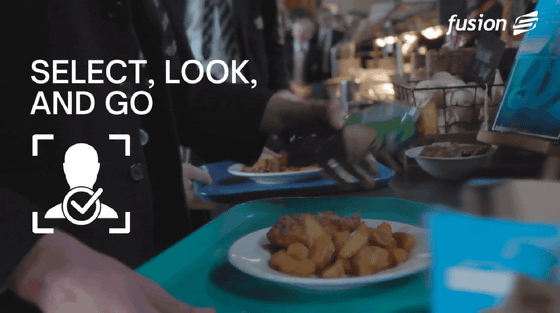A school that tries to speed up the queue of the cafeteria with a face recognition system has appeared, and it is pointed out that the introduction of face recognition at school is illegal

On October 17, 2021, it was reported that nine junior high schools in North Ayrshire, located in the southwestern part of Scotland, England, introduced a technology that ``identifies students by face and automatically pays in the cafeteria''. In addition to speeding up queues, this technology is said to prevent the spread of the new coronavirus more than card payments and fingerprint authentication, but there are also voices that it may be illegal.
Facial recognition cameras arrive in UK school canteens | Financial Times
This time, the face recognition system of CRB Cunninghams , which provides solutions such as ID management systems and online payment systems to educational institutions in the UK, was installed at a junior high school in North Ayrshire. The goal is to speed up. “A middle school needs to feed 1,000 students in 25 minutes, so we need faster payment processing,” said David Swanson, the company's marketing director. It claims that the average processing time per person can be reduced to 5 seconds.
Many schools in the UK have introduced payment systems that use biometrics such as fingerprint authentication, and although such biometrics have been in operation for several years, face authentication systems query users without explicit consent. As a result, there are voices of concern centered on privacy protection groups. The North Ayrshire Council said, ``97% of children and parents agreed,'' ``Not only were there many children who forgot their PINs for payment systems, but there were also cases of fraud using PINs, so this time The benefits of facial recognition systems are great,' but some parents said they were unsure whether their children were given enough information to make a decision There are also opinions such as 'I can't have it' and 'I think there is pressure to conform.'

The UK Ministry of Education provides guidance on various laws and regulations to domestic educational institutions, but regarding facial recognition systems, ``The Ministry of Education does not have data on the use of facial recognition in schools,'' he said. , explains that it is not aware of the introduction status of the face recognition system, and that it is up to each school to determine its suitability.
Regarding this case, Defend Digital Me, a privacy protection group for children, said that the lawsuits that occurred in France and Sweden in 2019 prohibited the use of face recognition systems in schools based on the `` General Data Protection Regulation (GDPR) ' '. Therefore, it is pointed out that the same ruling may be issued in the UK , which took over the GDPR even after leaving the EU . The collection of biometric data is considered to be of no value for trivial purposes, as it violates Article 16 of the United Nations Convention on the Rights of the Child and the Convention for the Protection of Human Rights and Fundamental Freedoms of the Council of Europe. Advocated to stop collecting high biometric data.
Fraser Sampson of the Biometrics Commissioner, an independent organization that makes policy recommendations on biometric authentication to the British government, said, ``If there is a less intrusive method, you should use it,'' and the school uses face recognition technology. The view is that just because you can do it doesn't mean you should use it.
Related Posts:
in Software, Posted by darkhorse_log







